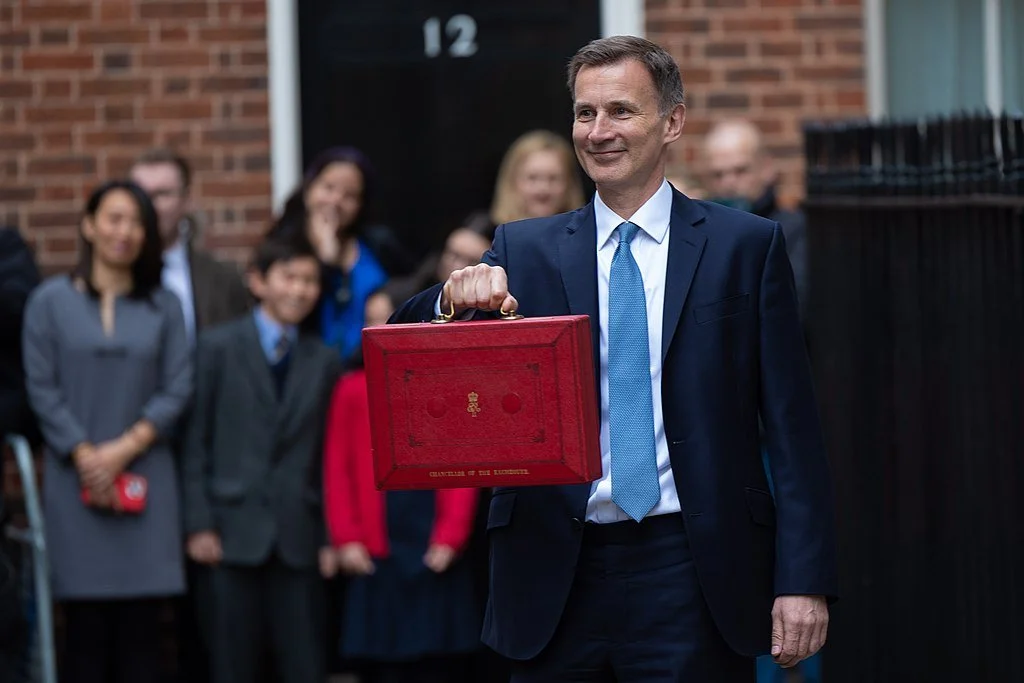As regular readers will know, we aren’t afraid to criticise the Government, or opposition, when we think they’re doing the wrong thing. However, it would be churlish to not give them a metaphorical ‘pat on the back’ when they get things right. As we responded: “To his credit, the Chancellor put the long-term interests of British businesses front and centre of the Autumn Statement.”
I wrote about the impact on entrepreneurs for Forbes, and I was quoted alongside many others in UKTN. Following up on last week’s predictions, we welcomed the Government’s decision to make full expensing permanent, to extend the sunset clauses of the Enterprise Investment Scheme (EIS) and Venture Capital Trusts (VCTs), and to offer some compromise on R&D tax credits.
All the way back in 2018, we made the case for full expensing in a report for the APPG for Entrepreneurship unimaginatively titled Tax Reform, while the APPG more recently produced the much better named Funding to Flourish report, which called for the extension of the sunset clause for the EIS and VCTs.
We weren’t the only organisation calling for these and other things announced in the Autumn Statement. But Sam Dumitriu, our previous Research Director and now Adviser must surely take a lot of credit – along with Sam Bowman, another of our other Advisers, and Tom Clougherty of the Centre for Policy Studies – for convincing those in power that full expensing is as important as the headline rate of corporation tax. When it comes to EIS and VCTs, Christiana Hambro of the EISA deserves a special mention, alongside Will Fraser-Allen (Albion Capital) and Justine Duggan (Octopus Group) of the Venture Capital Trust Association (VCTA).
This is a long way of making the obvious point that all policy successes have many mothers and fathers, but it’s also testament to the fact that the UK’s civil society of think tanks, business and trade groups work well at educating and holding the Government to account.
Also of note, the Autumn Statement also accepted the findings of the spinouts review, which recommended more standardised equity terms, clearer timeframe expectations and increased public funding for proof of concept funds. Our Head of Research Eamonn has an X thread for the tldr. While it didn’t go as far as we called for in Academic to Entrepreneur, it went as far as we could have expected.
As Sifted reported: “Founders will own more of their spinouts and will be free to focus on building breakthrough companies, rather than negotiating with TTOs,” says Nathan Benaich, the founder of Air Street Capital. “Today’s review is a significant victory for founders and the UK’s science and tech ecosystem.”
There was certainly some devil in the details (most obviously the fact that freezing income tax thresholds will more than offset the NICs reductions), but there were also a couple of angelic details that didn’t get picked up by many.
For example, Stian Westlake revealed that there will be funding for a new metascience unit, which will fund research into important questions about what sorts of innovation funding works, and how to improve them, and conduct experiments on funding methods.
While The Economist dug deep to uncover news that could transform the cutting-edge of medicine: “Medicines and Health-care products Regulatory Agency (MHRA) is working with Genomics England, Oxford University and Mila’s Miracle Foundation, a charity, to develop a regulatory pathway to allow one-off drugs to be designed and approved for use in individual patients in less than a year.” This is a big regulatory win, and added to the recent news that the UK is the first to approve CRISPR treatment for diseases, it is encouraging that the UK could be on the verge of fulfilling our call to become a Testbed Nation.
There is much more to unpick over the coming weeks, but I’ll summarise with the conclusion from my Forbes article:
“With the OBR’s growth forecasts down, Hunt was right to focus on Britain’s businesses as the key driver of future prosperity. It’s just a shame that this long-term thinking has not always been present in other fiscal announcements made in the last 13 years. With Brexit, the pandemic and crippling energy prices, the last few years have been incredibly tough for entrepreneurs. As our recent Risk Readiness Report with Mishcon de Reya showed, a significant proportion of entrepreneurs (39%) believe the overall level of risk in the business environment is higher now than it was 12 months ago, and the same proportion (39%) think the level of risk will only increase in the coming year. A bit of good news was well overdue.”
Wise Purchase
James Wise of Balderton Capital has just published Start-Up Century. It is based on two observations: more people than ever are choosing to, or having to, start their own businesses and become self-employed. But at the same time the obstacles to scaling a business and thriving as an entrepreneur are as prevalent as ever. This book is his attempt to address this challenge, to point out the many positives of having a more entrepreneurial economy, and to weave a way through the regulatory, financial, educational and cultural changes we need to make to seize on this renewed interest in entrepreneurialism.
I was lucky enough to have an early sight of the book. Recommended reading.
Join Us
On the 24th of January from 6pm to 8pm, OakNorth is hosting an informal drinks event for our Patrons and Advisers. In 2024, we’re going to host events every couple of months just aimed at our Patrons and Advisers. The second will be a more formal roundtable with the British Business Bank. If you want to come along, just let us know. And if you want to find out more about becoming an Adviser, drop me an email.
You can read the whole newsletter here, and sign up for the newsletter here.

